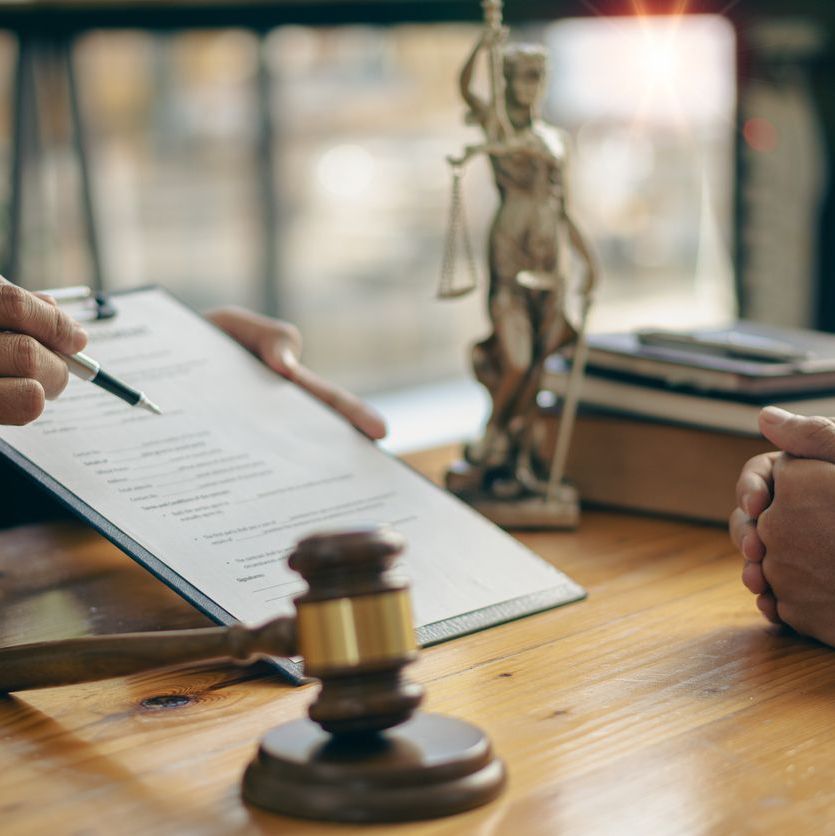Comprehending Habeas Corpus: An Attorney's Overview to Legal Civil Liberty
Comprehending Habeas Corpus: An Attorney's Overview to Legal Civil Liberty
Blog Article
Comprehending the Role of a Post-Conviction Attorney in Seeking Justice After a Criminal Sentence
In the complicated landscape of post-conviction legal process, the function of a post-conviction attorney is essential in browsing the path to justice after a criminal conviction - alabama federal habeas attorneys. As the quest of justice expands past the boundaries of preliminary process, the duty of a post-conviction legal representative emerges as a beacon of hope for those seeking to remedy oppressions and redeem their rights within the lawful system.
Post-Conviction Legal representative's Investigative Job
Post-conviction lawyers involve in thorough investigative job to discover new proof, procedural errors, or misconduct that might possibly lead to reversing a conviction. This investigatory phase is crucial in the post-conviction procedure as it intends to identify any kind of ignored information or lawful bad moves that might have influenced the result of the first trial. Post-conviction attorneys explore situation documents, witness testimonies, and legal paperwork with a fine-tooth comb, searching for any type of inconsistencies or abnormalities that can be grounds for charm.
With thorough examination, post-conviction lawyers intend to lose light on possible injustices that may have occurred during the initial test. They may conduct interviews, talk to professionals, and evaluation forensic evidence to develop a compelling case for their clients. By scrutinizing every facet of the lawful procedures, post-conviction attorneys function relentlessly to discover any type of elements that might have affected the decision. Ultimately, their investigative job plays a crucial function in the search of justice and the prospective turnaround of wrongful sentences.
Crafting Appeals and Petitions
In the search of justice after a sentence, knowledgeable lawyers meticulously craft charms and requests to present engaging arguments for the reconsideration of legal decisions. Crafting allures and requests requires a deep understanding of the legal system, interest to information, and tactical thinking. Post-conviction legal representatives examine trial records, determine prospective errors or infractions of legal rights, and develop lawful debates to challenge the conviction or sentence.
When crafting an appeal, legal representatives concentrate on highlighting lawful mistakes that might have affected the result of the instance. They research situation legislation, laws, and legal criteria to support their disagreements. Petitions, on the other hand, might entail providing new evidence that was not offered throughout the trial or demonstrating adjustments in the legislation that warrant a testimonial of the sentence.
In addition, post-conviction lawyers need to stick pop over here to stringent procedural rules and due dates when submitting charms and requests. They have to present their debates plainly and persuasively to encourage the court to give relief to their clients. Through careful crafting of allures and applications, post-conviction lawyers aim to secure justice for individuals that have actually been wrongfully convicted or unfairly sentenced.

Pursuing Post-Conviction Alleviation
Post-conviction relief encompasses an array of legal systems created to challenge the credibility of a sentence or sentence. Post-conviction lawyers play a crucial function in browsing these complex treatments, making sure that all lawful alternatives are explored to rectify injustices that might have occurred during the test or sentencing stage.
One common form of post-conviction alleviation is submitting a request for post-conviction relief, usually based on insurance claims of ineffective assistance of advice, prosecutorial misbehavior, recently found evidence, or constitutional infractions. Experienced post-conviction lawyers have the abilities and understanding required to recognize viable lawful insurance claims, carry out investigations, and existing compelling disagreements to safeguard alleviation for their customers.
Utilizing Forensic Evidence
When testing a conviction or sentence, the critical application of forensic evidence can be an effective device in post-conviction legal procedures. Forensic evidence incorporates a broad range of clinical techniques utilized to examine criminal activities and establish realities in court. Post-conviction attorneys can leverage forensic evidence to challenge the legitimacy of sentences by providing brand-new clinical findings that were not readily available during the initial test.

Engaging in Sentence Modifications
Post-conviction lawyers might explore the opportunity of sentence modifications as a lawful method to attend to disproportionate or unjustified sentences handed down in criminal situations. Sentence adjustments include looking for modifications to the regards to an accused's sentence after a sentence has occurred. These modifications can include minimizing the size of a sentence, altering the kind of penalty imposed, or exploring alternative sentencing choices.
Post-conviction attorneys can seek sentence adjustments with different lawful mechanisms, such as submitting activities for sentence decrease, appealing for thoughtful launch, or working out appeal bargains for reduced sentences. They have to thoroughly assess the circumstances of the case, evaluate the lawful premises for seeking a modification, and existing engaging disagreements to the court sustaining the demand for a modified sentence.
Taking part in sentence adjustments calls for a comprehensive understanding of criminal law, sentencing standards, and the details treatments entailed in seeking post-conviction relief. Post-conviction attorneys play an important duty in supporting for reasonable and just outcomes by difficult sentences that are unduly harsh or do not align with the concepts of justice.
Final Thought
Finally, the duty of a post-conviction lawyer is critical in looking for justice after a criminal conviction. With investigative job, crafting charms and requests, pursuing post-conviction relief, using forensic proof, and involving in sentence modifications, these attorneys play a vital function in supporting for their customers and ensuring that their legal rights are upheld within the criminal justice system. Their devotion and competence are vital in browsing the complexities of post-conviction process and attaining a reasonable outcome for individuals encountering criminal convictions.
Report this page